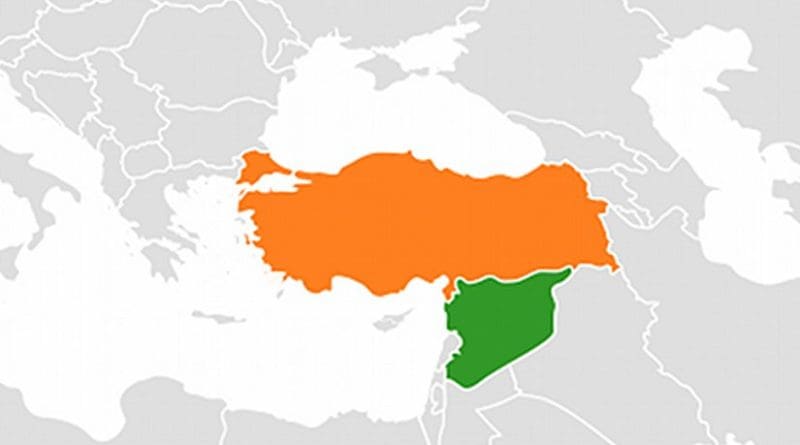The Perils Of Turkey’s Afrin Campaign – OpEd
Turkey’s present military campaign inside the Syrian territory has transpired after a half-baked US announcement of its decision to set up a mostly Kurdish “border patrol” consisting of some 30,000 fighters, a decision that was quickly shelved by the US Secretary of State Rex Tillerson no sooner than it had been broadcast to the world.
Turkey’s gambit has been denounced by Damascus as a violation of its sovereignty and it remains to be seen if it will prove to be the straw that broke the camel’s back, the camel in this case being the tripartite Russia-Iran-Turkey partnership for peace in Syria that the US interprets as antithetical to its interests and maneuvers to break it up and bring Turkey back to its traditional NATO fold sooner rather than later.
A big question is, of course, the end game of the Afrin campaign, its duration and intensity, given Ankara’s stated rationale to create a 30 kilometer buffer zone inside Syria. So far, according to reports, the Turkish incursion has gone only as far as 5 miles deep inside Syria and, naturally, one wonders if even the desired enclave will suffice to put Turkey’s anti-Kurdish anxieties to rest — by simply moving its borders so many miles into its neighboring territory?
Certainly, the Syrian Kurdish People’s Protection Units (YPG) which operate inside the Syrian Democratic Forces (SDF) are well-armed and well-trained to withstand any mortal blow by Turkey and their ability to fight back should not be underestimated, in other words this could become Ankara’s quagmire, and one that could result in the demise of the tripartite alliance mentioned above. Should this outcome materialize over time, i.e., the next few months, then credit should go to US’s smart power politics rattling the waters sufficient to sink the ship of peacemaking in Syria dominated by those three powers.
In turn, this raises the question of what is US’s strategy in Syria? According to Russian officials, it is to split up Syria, a task well managed in another Arab country, namely Libya. To achieve this goal, US is building more and more mini-bases, thus accelerating its creeping interventionism, a risky move that could lead to open warfare with the Syrian government and its key backers.
As a result, the year ahead can be potentially dangerous for regional and world peace, particularly if Turkey does not self-restrict in Afrin and continues to harbor the illusion of a military solution. But, no matter what Turkey’s (good or bad) intentions, it is increasingly clear that Washington has its own scripts for Syria and the broader region, only some of which coincide with Turkey’s interests. A whole new era of coinciding and conflicting interests between Washington and Ankara has suddenly emerged that can be quite complicating for Ankara to manage.
Turkey is also vulnerable to ISIS and other terrorists’ threats, and not simply the Kurdish threat, and the US is clearly keen on exploiting those vulnerabilities to dictate terms to its NATO ally presently crossing some ‘red lines’ by cozying up to US’s rivals. A delicate balancing act full of nuances and contingencies on Ankara’s part is called for, otherwise it will fall into the traps weakening its ability to conduct sound foreign policy according to its national interests.

